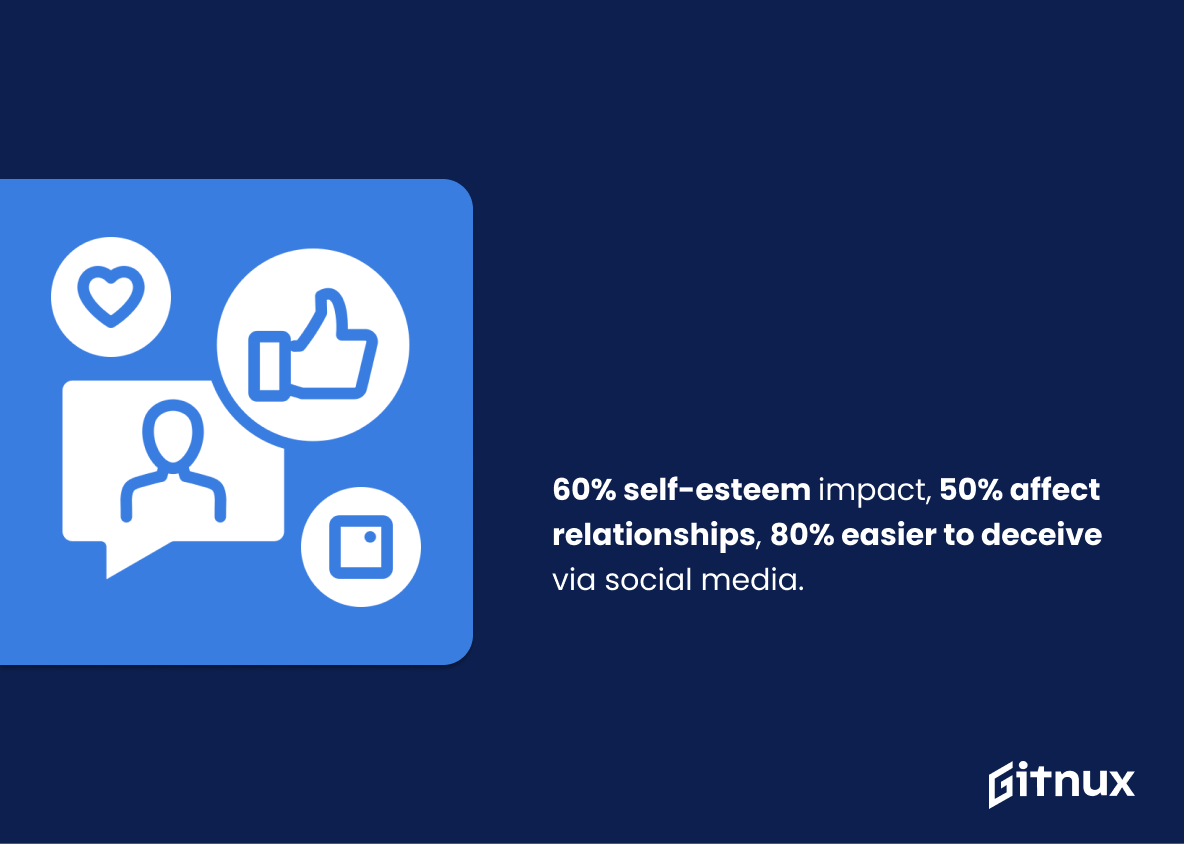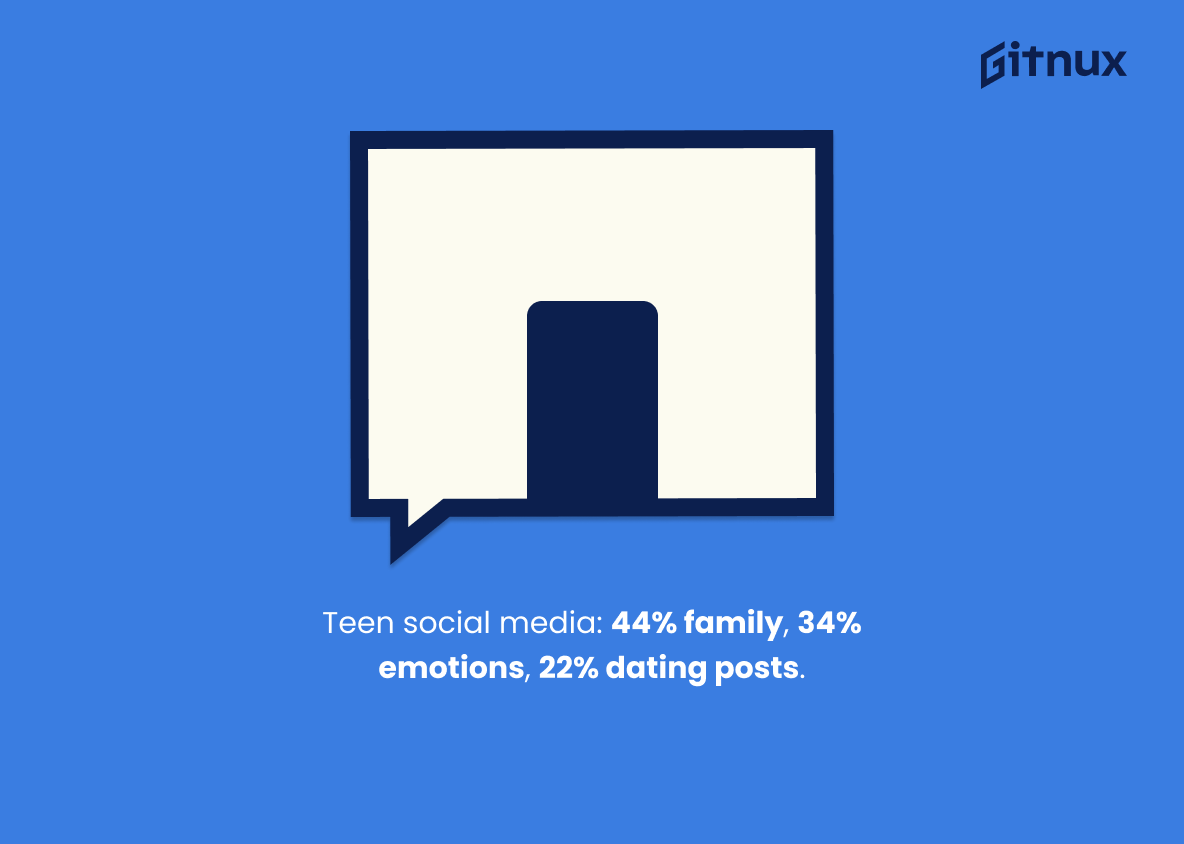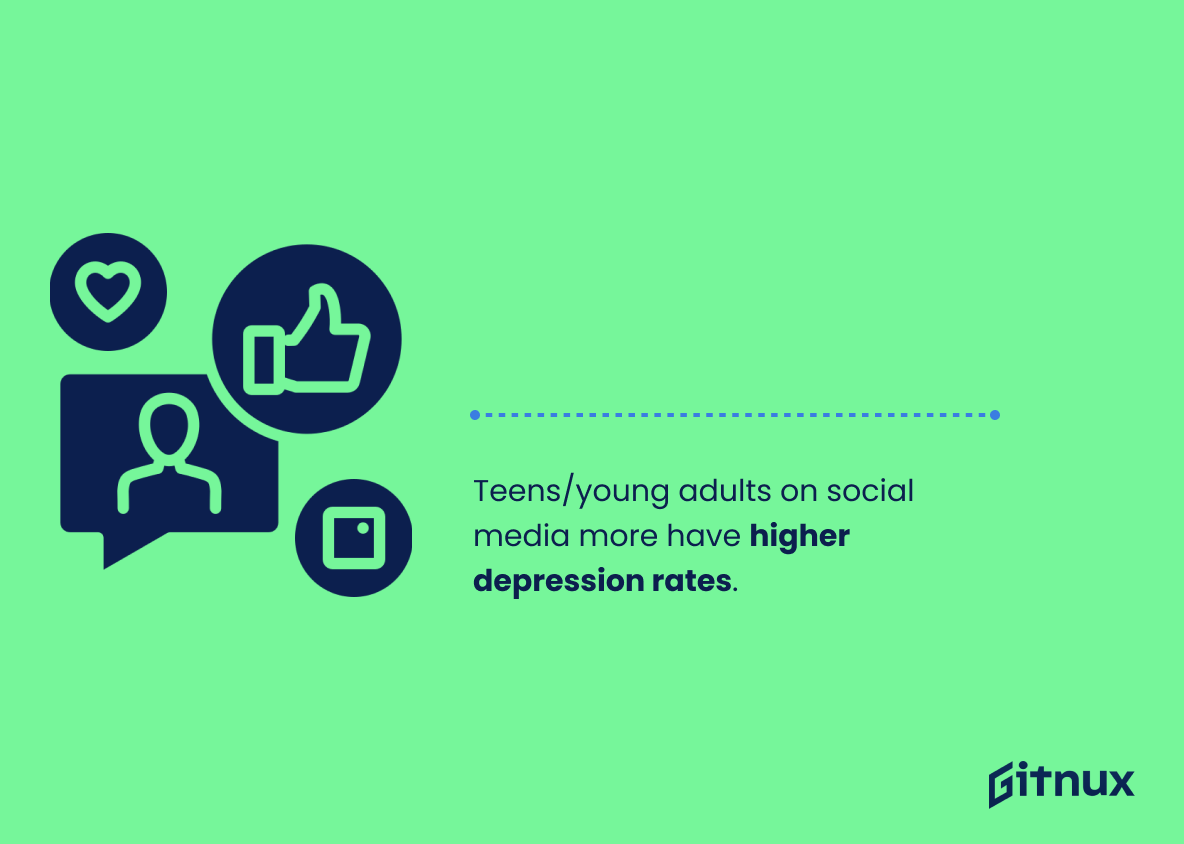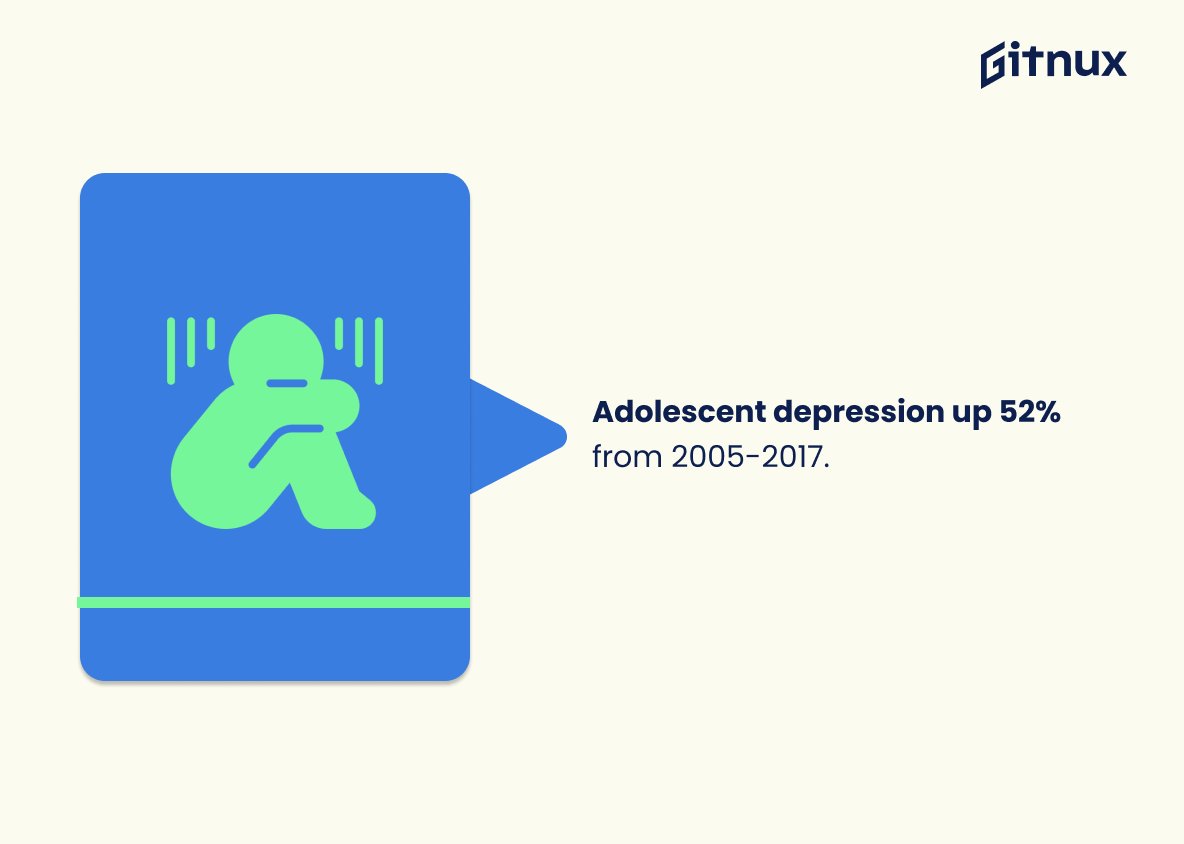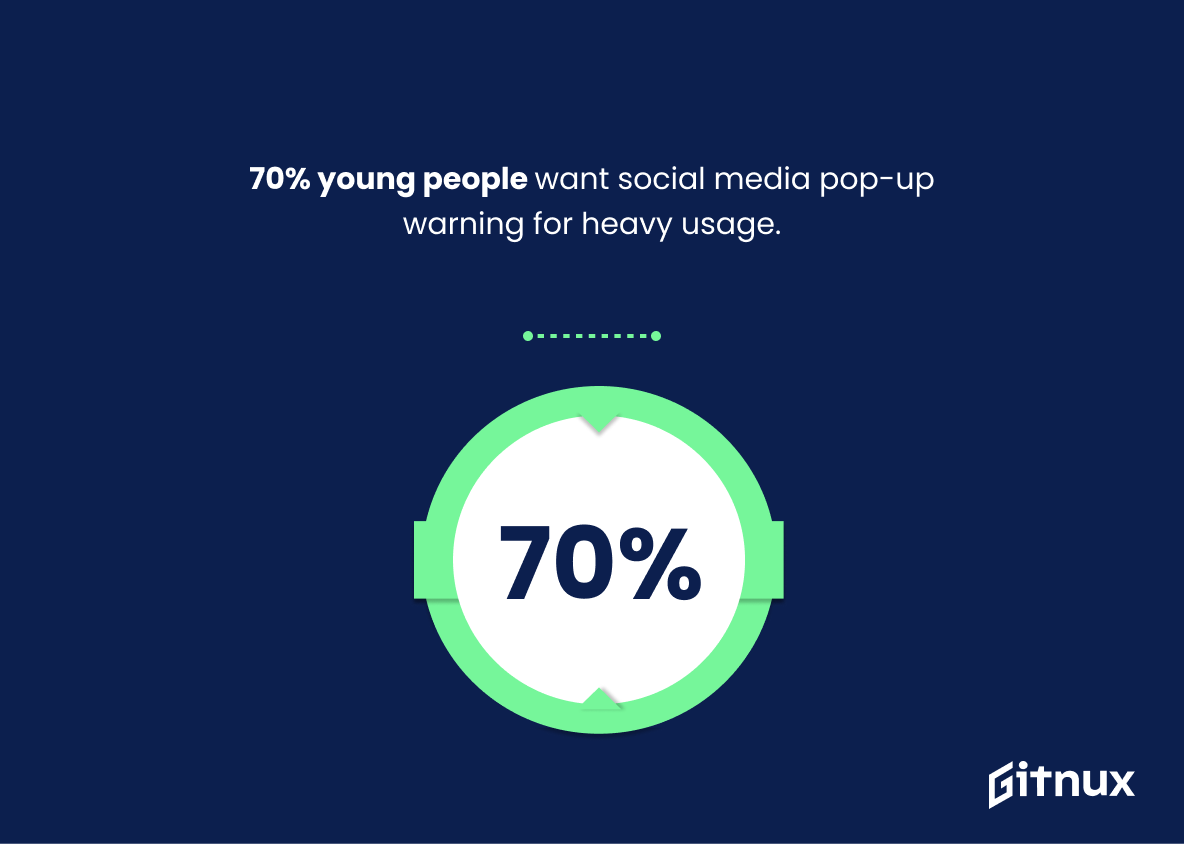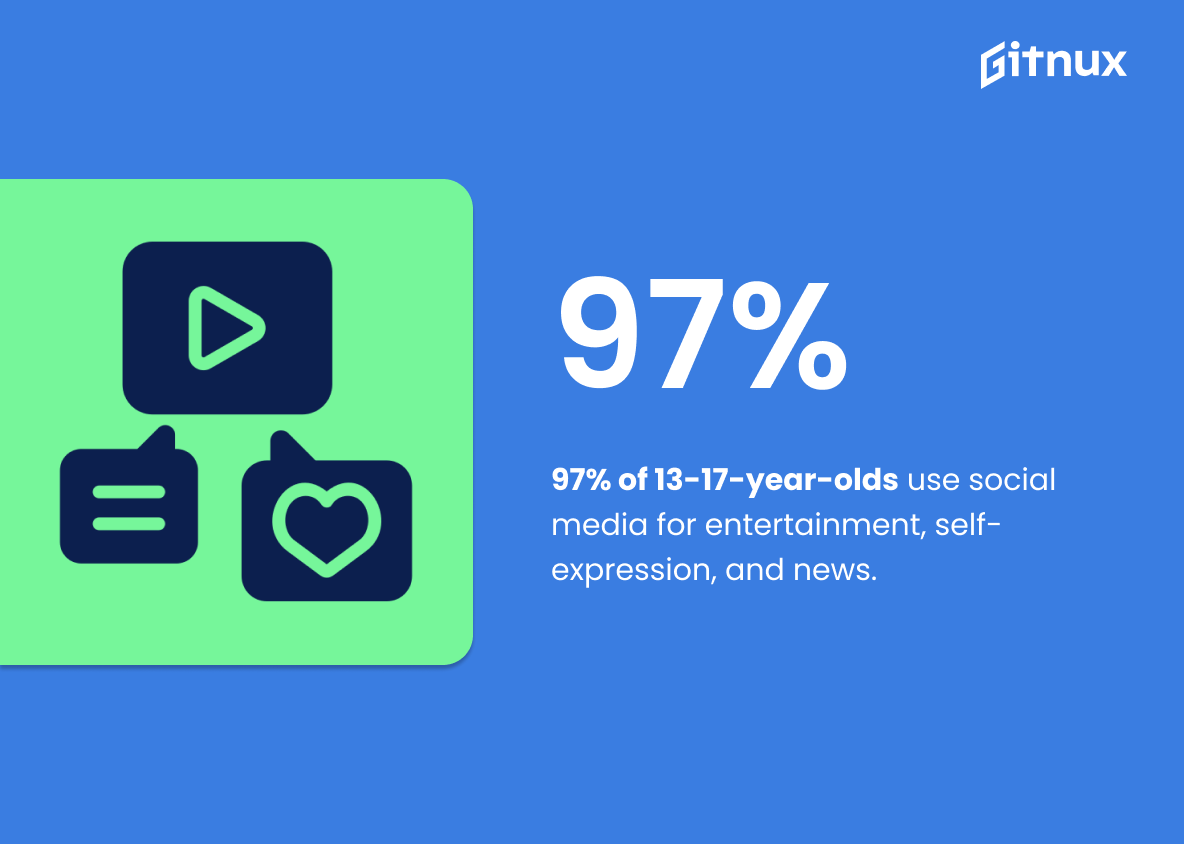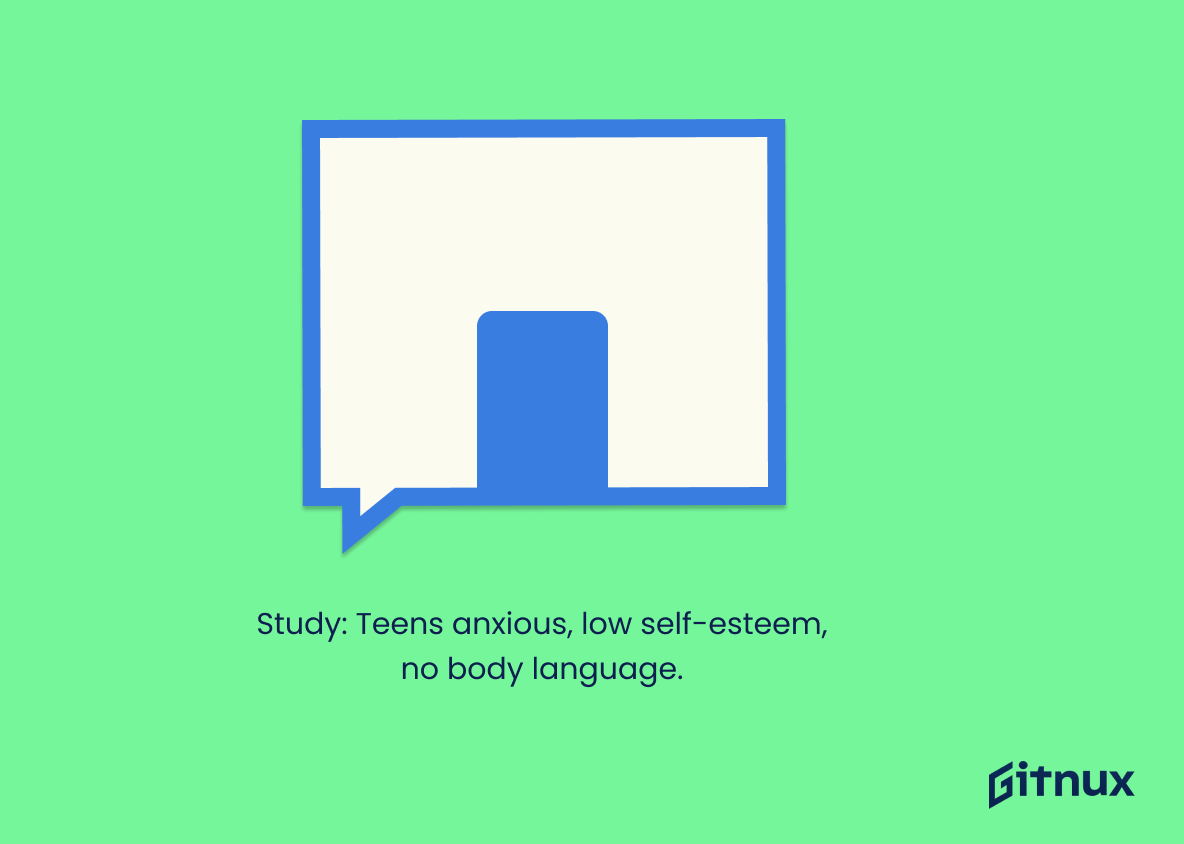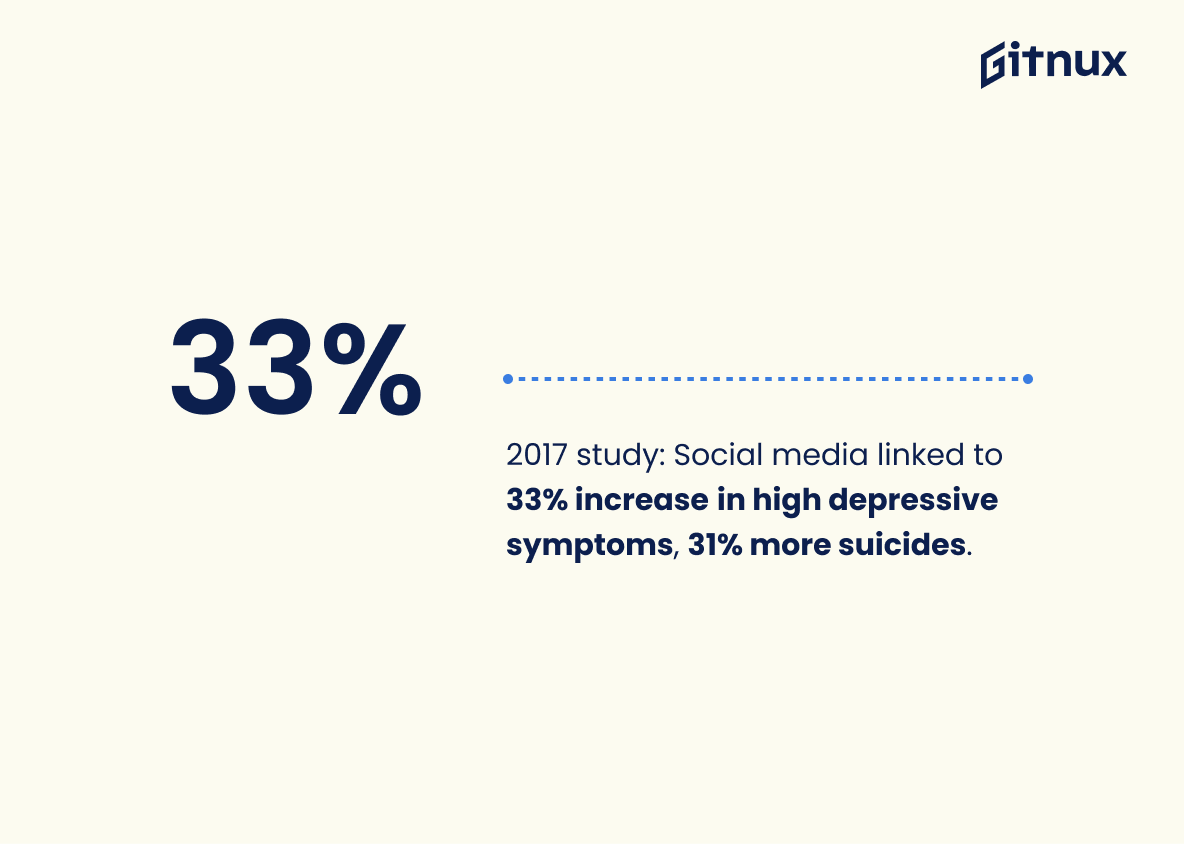Social media has become a major part of our lives, and it can have a huge impact on our self-esteem. It can be a great way to stay connected with friends and family, but it can also be a source of comparison and self-doubt.
In this blog post, we’ll take a look at some statistics surrounding social media and self-esteem, and discuss how we can use this information to help us build a healthier relationship with social media.
Social Media Self Esteem: The Most Important Statistics
70% of young people favor adding a pop-up warning to social media channels warning them of heavy usage.
A 2017 study found that social media usage was linked to a 33% increase in adolescents with high levels of depressive symptoms and 31% more suicide deaths, particularly among females.
Social Media Self Esteem Statistics Overview
60% of people using social media reported negative impacts on their self-esteem. 50% reported negative effects on their relationships, and 80% reported it is easier to be deceived by others through their sharing on social media.
This highlights the potential risks associated with social media use, such as loneliness, envy, anxiety, depression, narcissism, decreased social skills, and decreased self-esteem.
Social media has become a key tool for teens to connect, share their lives, and express their emotions, with 44% posting about their family, 34% sharing their emotions, and 22% posting about their dating life.
Effect of Social Media on Teenagers’ Self Esteem
Teens are using social media to express themselves and share their lives, which can have a significant impact on their self-esteem.
Teenagers and young adults who spend the most time on social media platforms have a substantially higher rate of reported depression than those who spend the least time.
The more time young people spend on social media, the more likely they are to develop depressive symptoms. It also highlights the importance of limiting social media use and encouraging young people to engage in activities that promote self-esteem and mental health.
Impact of Social Media on Self Esteem
The prevalence of depression among adolescents has increased by 52% from 2005 to 2017.
This correlation could be due to the fact that social media often encourages comparison to others, which can lead to feelings of low self-worth and other maladaptive symptoms. It is a reminder that social media use should be monitored and managed carefully in order to prevent the development of depression.
70% of young people favor adding a pop-up warning to social media channels warning them of heavy usage.
It proves that young people are aware of the potential negative effects of social media and are looking for ways to protect themselves from it. They are looking for ways to protect themselves from the potential negative effects of social media and are willing to take action to do so.
97% of 13-17 year olds use social media platforms, which can provide entertainment, self-expression, and exposure to current events.
On this, we can see that social media is a large part of many teens’ lives, and it can have a significant impact on their self-esteem, either positively or negatively. Therefore, it is important to understand how teens are using social media and the potential effects it can have on their psyche.
The same study shows that teens are more anxious and have lower self-esteem due to social media and texting, as they miss out on body language and facial expressions, and are constantly connected to each other.
Social media comparisons have an impact on our behavior and psychological well-being. By understanding the consequences of comparing ourselves to others on social media, we can better manage our own mental health.
A 2017 study sadly found that social media usage was linked to a 33% increase in adolescents with high levels of depressive symptoms and 31% more suicide deaths, particularly among females.
Conclusion
In conclusion, it is clear that social media has a huge impact on our self-esteem. While some statistics may be alarming, it is important to remember that we all have the power to take control of our own self-esteem.
We can choose to use social media positively, by connecting with others, expressing ourselves, and sharing our stories. We can also take steps to protect our mental health, such as setting boundaries, limiting our time on social media, and seeking help if we need it.
By taking these steps, we can ensure that social media is a positive force in our lives and that our self-esteem remains intact.
References
1 – https://www.huffpost.com/entry/social-medias-impact-on-self-esteem_b_58ade038e4b0d818c4f0a4e4
2 – https://www.pewresearch.org/internet/2018/11/28/teens-and-their-experiences-on-social-media/
3 – https://childmind.org/article/is-social-media-use-causing-depression/#:~:text=In%20several%20studies%2C%20teenage%20and,who%20spent%20the%20least%20time.
4 – https://www.frontiersin.org/articles/10.3389/fpsyt.2021.641934/full
5 – https://www.irreverentgent.com/social-media-and-self-esteem-statistics/
6 – https://www.ncbi.nlm.nih.gov/pmc/articles/PMC7562923/
7 – https://www.mayoclinic.org/healthy-lifestyle/tween-and-teen-health/in-depth/teens-and-social-media-use/art-20474437
8 – https://childmind.org/article/how-using-social-media-affects-teenagers/
9 – https://theconversation.com/how-social-media-can-crush-your-self-esteem-174009
10 – https://www.acc.edu.au/blog/social-media-low-self-esteem/
ZipDo, cited June 2023: Social Media Self Esteem Statistics
